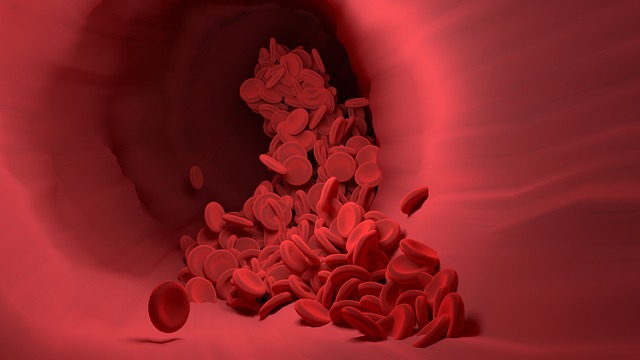 Today’s article is about K2. Not the K2 that is the second highest mountain on earth nor the K2 brand of skiing and snowboarding equipment. No, the K2 I am discussing today is a vitally important vitamin that very little is known about. Research is showing us just how important this vitamin is, but this research is still in its infancy. Although it appears to be safe and well tolerated, no recommended level has been established. More is known about its close relative to vitamin K1. K1 is found in leafy green vegetables and is essential for our blood to coagulate. So, if you cut yourself and find you just keep dripping blood, you may have a K1 deficiency. Mostly we hear about K1 for the opposite reason, for when we don’t want the blood to clot. If you have had a stroke or heart attack, the doctors put you on blood thinners like warfarin or coumadin. In those cases, they give you a long list of foods not to eat that contain K1 because the specific action of the blood thinners is to oppose the action of K1.
Today’s article is about K2. Not the K2 that is the second highest mountain on earth nor the K2 brand of skiing and snowboarding equipment. No, the K2 I am discussing today is a vitally important vitamin that very little is known about. Research is showing us just how important this vitamin is, but this research is still in its infancy. Although it appears to be safe and well tolerated, no recommended level has been established. More is known about its close relative to vitamin K1. K1 is found in leafy green vegetables and is essential for our blood to coagulate. So, if you cut yourself and find you just keep dripping blood, you may have a K1 deficiency. Mostly we hear about K1 for the opposite reason, for when we don’t want the blood to clot. If you have had a stroke or heart attack, the doctors put you on blood thinners like warfarin or coumadin. In those cases, they give you a long list of foods not to eat that contain K1 because the specific action of the blood thinners is to oppose the action of K1.
 So what does K2 do? Why is it so vital? K2 has to do with where the body puts calcium. We want the body to put the calcium into the bones and not into the walls of our arteries. This is one of the big features of K2. Higher intakes of K2 result in lower rates of bone fracture and osteoporosis and lower rates of peripheral artery disease and heart disease. This may not be something you think about in your 20s, but once you get into your 60s and up, these become big issues. The combination of K2 and vitamin D is found to activate a protein called matrix GLA that prevents calcium deposits from forming in the lining of the blood vessels and other soft tissues. K2 is also known to activate the hormone osteocalcin which is secreted by fibroblasts for laying down calcium into bones. But osteocalcin does more than just that. It increases insulin production to help your sugar metabolism and increases testosterone which then improves muscle strength and improves brain function. So K2 is all about moving calcium to the right places by activating different proteins. It moves calcium into the bones and pulls it out of soft tissues like your arteries.
So what does K2 do? Why is it so vital? K2 has to do with where the body puts calcium. We want the body to put the calcium into the bones and not into the walls of our arteries. This is one of the big features of K2. Higher intakes of K2 result in lower rates of bone fracture and osteoporosis and lower rates of peripheral artery disease and heart disease. This may not be something you think about in your 20s, but once you get into your 60s and up, these become big issues. The combination of K2 and vitamin D is found to activate a protein called matrix GLA that prevents calcium deposits from forming in the lining of the blood vessels and other soft tissues. K2 is also known to activate the hormone osteocalcin which is secreted by fibroblasts for laying down calcium into bones. But osteocalcin does more than just that. It increases insulin production to help your sugar metabolism and increases testosterone which then improves muscle strength and improves brain function. So K2 is all about moving calcium to the right places by activating different proteins. It moves calcium into the bones and pulls it out of soft tissues like your arteries.
 There are several types of vitamin K2. The family is called menaquinones because they have a head of a chemical called a quinone and a tail that might be 4, 7, 8, and up to 13 wiggles long. The resulting forms are abbreviated as MK-4, MK-7, MK-8, and so on to MK-13. Each form is found in different parts of nature. MK-4 will actually be produced from vitamin K1 by our livers. MK-7 is found in fermented foods, particularly fermented soy. The average diet contains 10 times as much K1 as K2, and most of the K2 forms are poorly absorbed. The exception is MK-7 which is much better absorbed than other K2s or K1. The problem is the western diet contains very little K2 in it. We don’t eat lots of natto, tempeh, goose liver, or fermented foods. What little we do get probably comes from aged cheese (not the sliced stuff on your egg McMuffin.)
There are several types of vitamin K2. The family is called menaquinones because they have a head of a chemical called a quinone and a tail that might be 4, 7, 8, and up to 13 wiggles long. The resulting forms are abbreviated as MK-4, MK-7, MK-8, and so on to MK-13. Each form is found in different parts of nature. MK-4 will actually be produced from vitamin K1 by our livers. MK-7 is found in fermented foods, particularly fermented soy. The average diet contains 10 times as much K1 as K2, and most of the K2 forms are poorly absorbed. The exception is MK-7 which is much better absorbed than other K2s or K1. The problem is the western diet contains very little K2 in it. We don’t eat lots of natto, tempeh, goose liver, or fermented foods. What little we do get probably comes from aged cheese (not the sliced stuff on your egg McMuffin.)
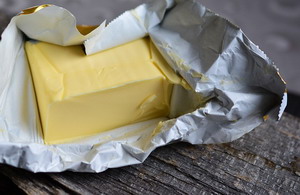 A secondary concern is that the K vitamins are fat-soluble vitamins. So if you eat a low-fat diet, you can’t absorb the K that is in the food. The same is an issue for the rest of the fat-soluble vitamins – A, D, & E. Similar issues exist for folks that have had their gallbladders removed or have poor gallbladder function. You must eat fat to get these vitamins into your body — end of story.
A secondary concern is that the K vitamins are fat-soluble vitamins. So if you eat a low-fat diet, you can’t absorb the K that is in the food. The same is an issue for the rest of the fat-soluble vitamins – A, D, & E. Similar issues exist for folks that have had their gallbladders removed or have poor gallbladder function. You must eat fat to get these vitamins into your body — end of story.
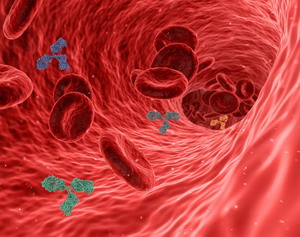 Previously, I mentioned that blood-thinning drugs directly oppose the action of vitamin K1. An unintended secondary effect that coumadin and warfarin have when you take them to keep the blood thin is it also inactivate vitamin K2. That means the osteocalcin hormone and the matrix GLA proteins are not being activated by K2, so you end up getting osteoporosis and hardening of the arteries (arteriosclerosis) because of these drugs — not so good. Everything in the body is immensely complex just like this. When you look at a list of the “side” effects of a particular drug, understand that these are not “side” effects, these are primary effects that you don’t want. Every one of those listed effects involves some metabolic pathway in the body that is being disrupted by the medication. The stronger and more resilient your body is the less likely that your body will show up with a side effect because your body will figure out a way to compensate for the screw-up.
Previously, I mentioned that blood-thinning drugs directly oppose the action of vitamin K1. An unintended secondary effect that coumadin and warfarin have when you take them to keep the blood thin is it also inactivate vitamin K2. That means the osteocalcin hormone and the matrix GLA proteins are not being activated by K2, so you end up getting osteoporosis and hardening of the arteries (arteriosclerosis) because of these drugs — not so good. Everything in the body is immensely complex just like this. When you look at a list of the “side” effects of a particular drug, understand that these are not “side” effects, these are primary effects that you don’t want. Every one of those listed effects involves some metabolic pathway in the body that is being disrupted by the medication. The stronger and more resilient your body is the less likely that your body will show up with a side effect because your body will figure out a way to compensate for the screw-up.
 The two actions I have listed so far for K2 are simply the two most studied impacts of K2. However, K2 affects different things all over the body. A tiny dose of K2 of only 32 mcg/day in thousands of patients showed a 25% decrease in all-cause mortality. Let that sink in. A dose too small to even see reduced the chances of dying from anything by 25%. One of the areas that have been discovered is that K2’s activation of osteocalcin directly affects diabetes and kidney disease. This increases insulin production, and insulin sensitivity, and decreases body fat mass! Is anyone talking to diabetics about vitamin K2? No, no one is because how this all works has not been figured out yet. Medicine likes to wait until all the cards are on the table before making any recommendations. This seems silly to me with something that has been shown to produce no negative consequences when used at high doses. Yes, I like to understand everything as well, but I am not going to wait until science actually figures out how electricity really works to turn on my light switches at home. (Yes, science does not fully understand electricity yet.)
The two actions I have listed so far for K2 are simply the two most studied impacts of K2. However, K2 affects different things all over the body. A tiny dose of K2 of only 32 mcg/day in thousands of patients showed a 25% decrease in all-cause mortality. Let that sink in. A dose too small to even see reduced the chances of dying from anything by 25%. One of the areas that have been discovered is that K2’s activation of osteocalcin directly affects diabetes and kidney disease. This increases insulin production, and insulin sensitivity, and decreases body fat mass! Is anyone talking to diabetics about vitamin K2? No, no one is because how this all works has not been figured out yet. Medicine likes to wait until all the cards are on the table before making any recommendations. This seems silly to me with something that has been shown to produce no negative consequences when used at high doses. Yes, I like to understand everything as well, but I am not going to wait until science actually figures out how electricity really works to turn on my light switches at home. (Yes, science does not fully understand electricity yet.)
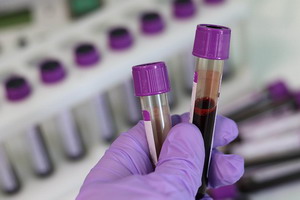 Part of the problem in understanding what and how vitamin K2 works are due to the fact that they don’t have any lab blood tests for K2 and the fact that for the longest time, studies did not differentiate between K1 and K2. So, the study results were all over the board. They would test to see if vitamin K affected heart disease and some studies said yes while other studies said no. They were not looking at the fact that sometimes they were testing K1 (which had no effect on heart disease) and other times they were testing K2 which has a strong effect on heart disease. Science is just now figuring out this big problem with their research.
Part of the problem in understanding what and how vitamin K2 works are due to the fact that they don’t have any lab blood tests for K2 and the fact that for the longest time, studies did not differentiate between K1 and K2. So, the study results were all over the board. They would test to see if vitamin K affected heart disease and some studies said yes while other studies said no. They were not looking at the fact that sometimes they were testing K1 (which had no effect on heart disease) and other times they were testing K2 which has a strong effect on heart disease. Science is just now figuring out this big problem with their research.
 From my perspective, vitamin K2 is one of the missing key pieces to why we have this huge epidemic of chronic degenerative disease. Our modern diet has virtually eliminated all-natural sources of K2 getting into our system. Animals are supposed to eat green plants which contain K1. Their bodies convert this K1 into some K2 which traditionally we would get when we ate the animals. But now commercial farming is feeding chickens, pigs, and cattle grain instead of green plants which completely eliminates the sources of K1 in their diets. This is one of the reasons why you want to eat pasture-raised poultry, eggs, and animals. K1 is very hard to absorb in the human gut. The other traditional source of K2 is fermented foods like sauerkraut, miso, and gross food like natto. We don’t eat fermented foods in this culture. We could get some from cheese as a fermented food, but the cows first have to be eating green grass, not grain. And second, you have to like aged cheeses, not pasteurized processed cheese food slices. Americans tend to like their cheese bland tasting, which means no real fermentation and therefore no K2 formation.
From my perspective, vitamin K2 is one of the missing key pieces to why we have this huge epidemic of chronic degenerative disease. Our modern diet has virtually eliminated all-natural sources of K2 getting into our system. Animals are supposed to eat green plants which contain K1. Their bodies convert this K1 into some K2 which traditionally we would get when we ate the animals. But now commercial farming is feeding chickens, pigs, and cattle grain instead of green plants which completely eliminates the sources of K1 in their diets. This is one of the reasons why you want to eat pasture-raised poultry, eggs, and animals. K1 is very hard to absorb in the human gut. The other traditional source of K2 is fermented foods like sauerkraut, miso, and gross food like natto. We don’t eat fermented foods in this culture. We could get some from cheese as a fermented food, but the cows first have to be eating green grass, not grain. And second, you have to like aged cheeses, not pasteurized processed cheese food slices. Americans tend to like their cheese bland tasting, which means no real fermentation and therefore no K2 formation.
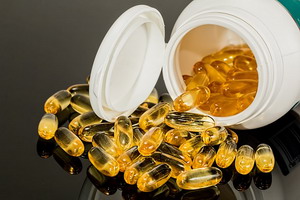 The only real choice left for us basic Americans is to take our K2 as a supplement. Most of the supplements I have looked at tend to have about 100mcg per daily dose. Of the many forms of K2, MK7 is the best absorbed and most biologically active. Is that dose enough to build bone and pull the calcium out of your heart and arteries? We don’t know yet. I have looked at studies using doses of 380mcg per day that got positive results. And I have seen one study that got great results using doses over 100 times higher but using MK4, a form of K2 that is poorly absorbed. There seems to be a lot of buzz right now about K2, so maybe we will get some more good studies. The problem is who will fund such studies? Most money for research these days comes from pharmaceutical companies which would have nothing to gain from studying a natural substance. So, maybe we just have to experiment on ourselves.
The only real choice left for us basic Americans is to take our K2 as a supplement. Most of the supplements I have looked at tend to have about 100mcg per daily dose. Of the many forms of K2, MK7 is the best absorbed and most biologically active. Is that dose enough to build bone and pull the calcium out of your heart and arteries? We don’t know yet. I have looked at studies using doses of 380mcg per day that got positive results. And I have seen one study that got great results using doses over 100 times higher but using MK4, a form of K2 that is poorly absorbed. There seems to be a lot of buzz right now about K2, so maybe we will get some more good studies. The problem is who will fund such studies? Most money for research these days comes from pharmaceutical companies which would have nothing to gain from studying a natural substance. So, maybe we just have to experiment on ourselves.
Take care,
David
